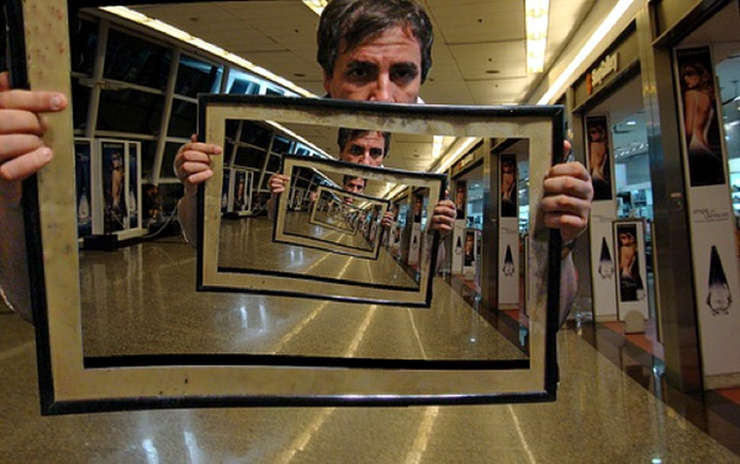Mirror Technique: How to Change Your Perspective on a Situation
Have you ever had an unpleasant encounter that left you feeling uneasy? Or found yourself replaying a difficult conversation long after it ended? The “Mirror” technique can help you look at a situation from different angles and change your attitude toward it on your own.
How to Use the Mirror Technique
- Find a quiet place. Sit on a chair in a calm, quiet spot where you won’t be disturbed.
- Set up a “stage.” Mark out a small area in front of you—on the floor or a table. You can use a sheet of A4 paper or a string to outline a circle as your stage.
- Replay the situation. In your mind, act out the troubling situation on this stage. Imagine you are an outside observer, watching the scene unfold in miniature. This could be an unpleasant meeting, a conversation, or any other event.
- Write down your reactions. Note your thoughts, feelings, and sensations as you observe the scene.
- Change your perspective. Move your chair further away from the stage and replay the situation in your mind again.
- Answer these questions in writing:
- What new things did I notice about the situation?
- What happened to my tension?
- How do I feel about what happened now?
- What can I do to minimize similar unpleasant situations in the future?
If you find it easy to answer these questions, changing your viewpoint once or twice may be enough. If it’s difficult (for example, if you feel confused or anxious), try moving to four or five different spots in the room, each time taking the position of a new observer. This helps you literally see the situation from multiple sides.
What Results to Expect
This technique helps you better understand your feelings and why you react the way you do. Your emotions become clearer, and your tension decreases or disappears.
You might notice that, despite being called the “Mirror” technique, the method actually uses a stage. Here’s why: This approach takes us back to a stage of childhood development that the creator of psychodrama, Jacob Moreno, called the “You” stage—the stage of recognizing others. At this time, we first realize we are different from others and become aware of our own “I.” It’s like when a child sees their reflection in a mirror and starts to understand that it’s themselves, not another boy or girl.
Similarly, in this technique, we look at ourselves as if in a mirror—from the outside. We can see ourselves not from within, as we do when we’re caught up in a situation, but from the perspective of an impartial observer.
This allows us to better understand both our own feelings and the experiences of others involved. Often, this is enough to change how we feel, and sometimes it helps us realize what we’d like to do differently next time.
Additional Uses
You can use this technique not only to process past events but also to rehearse upcoming situations that make you anxious—like asking your boss for a raise or taking an exam. This kind of rehearsal can help reduce anxiety and reveal opportunities for a positive outcome.



